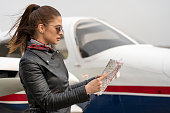
markgce3344841
About markgce3344841
The Evolution and Affect of Private Plane Flights In Modern Aviation
In the realm of aviation, private plane flights have emerged as a major segment, catering to a various clientele starting from enterprise executives to leisure travelers in search of exclusivity and comfort. The evolution of private aviation has transformed the way in which people and corporations strategy journey, offering unique advantages that commercial airlines usually cannot match. This article delves into the historical past, advantages, challenges, and future prospects of private plane flights, offering a comprehensive overview of this dynamic sector.
Traditionally, private aviation could be traced back to the early twentieth century, when rich people and businesses started to buy their own aircraft. The primary private planes have been primarily used for private journey and leisure, reflecting the social status of their homeowners. As the aviation trade progressed by way of the mid-twentieth century, the arrival of jet know-how revolutionized private flying, making it quicker and more accessible. The introduction of enterprise jets within the 1960s marked a turning point, as corporations acknowledged the worth of time-saving travel for their executives. The marketplace for private aviation expanded considerably, leading to the institution of fractional ownership programs and jet charter providers that democratized entry to private flights.
One of the crucial compelling advantages of private plane flights is the unparalleled convenience they offer. Travelers can avoid the prolonged security strains, crowded terminals, and rigid schedules related to commercial airways. Private flights might be scheduled on demand, permitting for larger flexibility in journey plans. For enterprise executives, this means the power to maximize productivity by flying on to their destination with out pointless layovers. Moreover, private jets can entry hundreds of airports that are not served by industrial airways, enabling travelers to land nearer to their closing vacation spot.

Another advantage of private aviation is the enhanced consolation and privacy it gives. Passengers can enjoy spacious cabins, personalised service, and the power to conduct meetings or work in a confidential atmosphere. The luxury of private flying extends beyond the physical space; it encompasses the whole journey experience, from gourmet catering to bespoke in-flight leisure. For top-profile individuals, corresponding to celebrities and politicians, the privacy afforded by private flights is invaluable, permitting them to keep away from the general public eye and maintain a sense of normalcy throughout their travels.
Nevertheless, the private aviation sector shouldn’t be with out its challenges. One of the urgent issues is the environmental influence of private flights. Aircraft emissions contribute considerably to international carbon footprints, and as awareness of local weather change grows, the aviation industry faces growing scrutiny. In response, many private aviation companies are investing in additional fuel-environment friendly aircraft and exploring different fuels to mitigate their environmental influence. Additionally, the rise of carbon offset packages allows travelers to compensate for their emissions by investing in renewable power tasks or reforestation initiatives.
Another challenge is the notion of exclusivity and elitism related to private flying. Whereas private aviation can provide significant time and value savings for companies, it also raises questions about social fairness. Critics argue that the resources devoted to private jets might be higher allocated to enhancing public transportation systems or making air journey more accessible for the overall population. In an era where sustainability and inclusivity are paramount, the private aviation trade should navigate these social dynamics fastidiously.

As we look to the future, the private aviation sector is poised for continued development and innovation. The COVID-19 pandemic has accelerated a shift in travel preferences, with many individuals and companies opting for private flights as a safer alternative to business air journey. This trend has led to a rise in demand for charter providers and fractional possession packages, as travelers search to minimize contact with others and get pleasure from a more controlled travel surroundings.
Technological developments are additionally shaping the way forward for private aviation. The development of electric and hybrid aircraft promises to reduce emissions and working prices, making private flying more sustainable and economically viable. Moreover, the integration of digital platforms for booking and managing private flights is enhancing the client expertise, permitting travelers to easily evaluate choices and tailor their journeys to their particular needs.
In conclusion, private plane flights have evolved considerably over the past century, reworking from a luxurious reserved for the elite to a viable choice for a broader vary of travelers. The convenience, comfort, and privateness provided by private aviation continue to attract people and businesses alike, regardless of the challenges posed by environmental issues and social perceptions. Because the business adapts to altering demands and embraces technological advancements, the future of private aviation appears promising, with the potential to redefine the way we expect about air travel. Whether for business or leisure, the allure of private flights is prone to endure, shaping the panorama of modern aviation for years to come.
No listing found.
